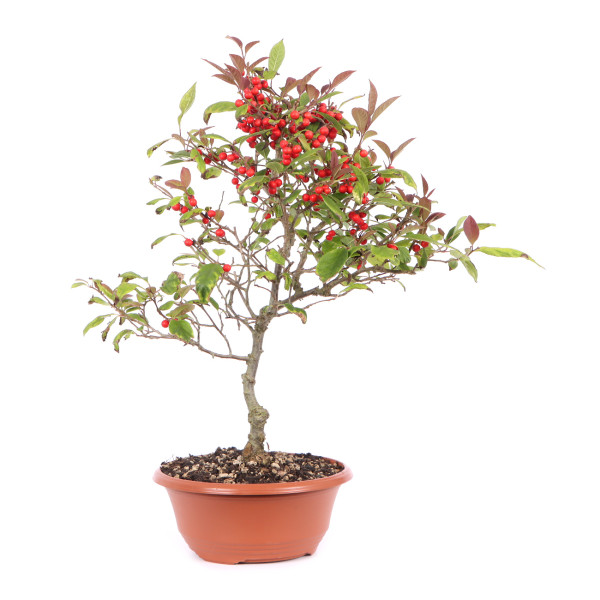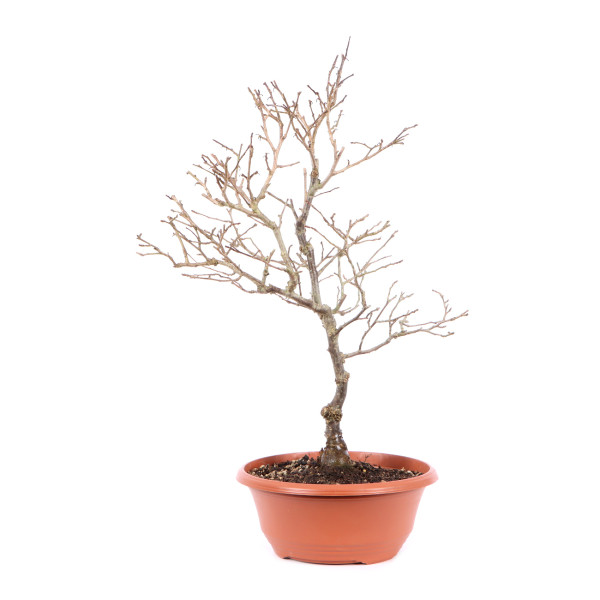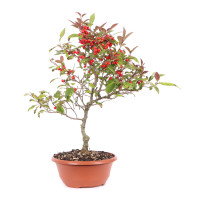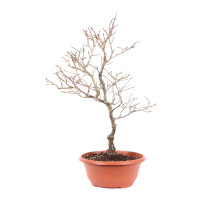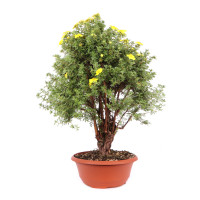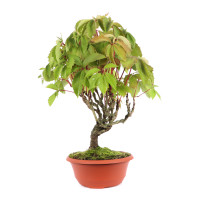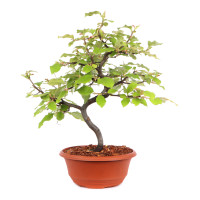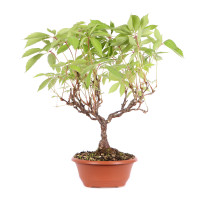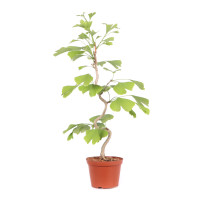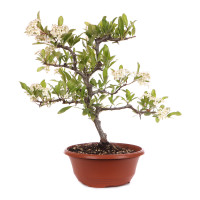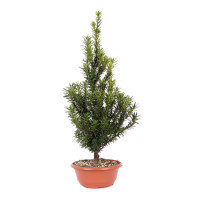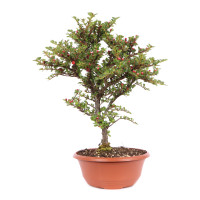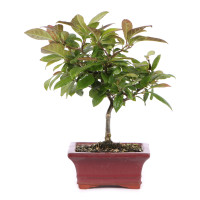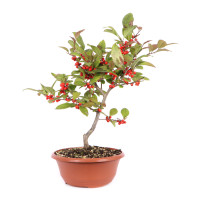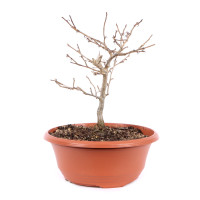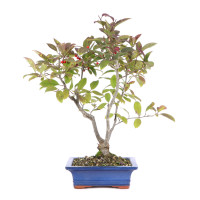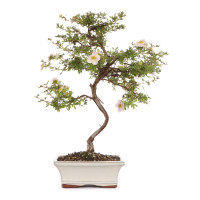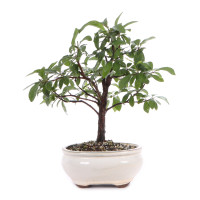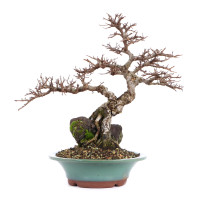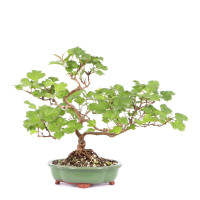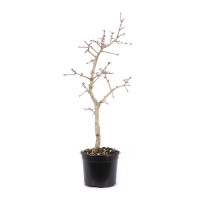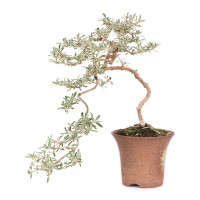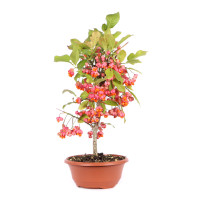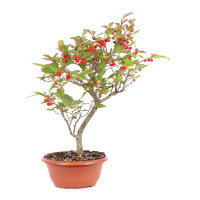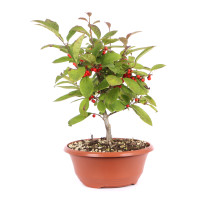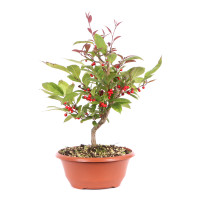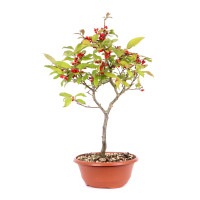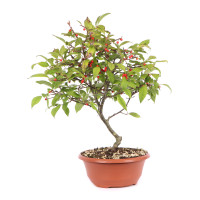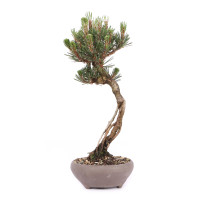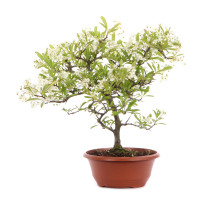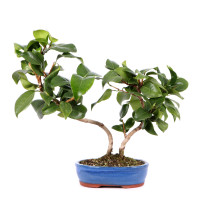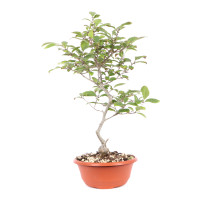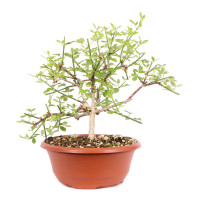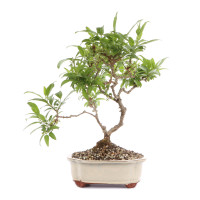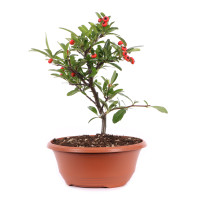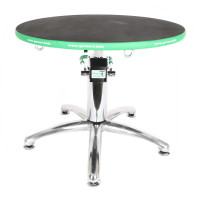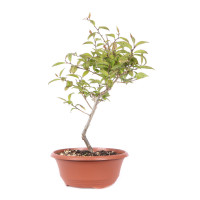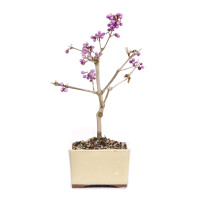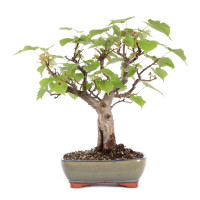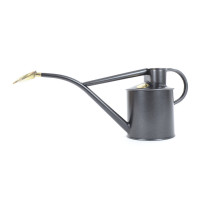- Order number: 1747-Pw-25-0727
- Addtion: female
- Height: 40 cm (incl. pot)
- Foliage: deciduous
- Bonsai Pot: plastic pot
- Year: 2014
- Characteristics: with flowers, with fruits
- Origin: Germany
Ilex serrata - Japanese Winter Berry
General:
The Japanese winter berry comes from Japan and grows here on the edges of forests, in groups of trees or on mountain slopes as a small shrub. It has deciduous and delicate leaves and therefore hardly resembles the other Ilex species. The leaves turn green-purple in autumn. The winter berry is also dioecious, and red berries are formed on the female plants.
Care as a bonsai:
The winter berry is very popular as a bonsai because of its fruit decorations. When the leaves are shed in autumn, the bright red, small fruits on the trees come into their own. A male plant of this species or genus is required in the immediate vicinity for fruiting. However, the best fertilization is achieved by combining a female and male plant directly during the flowering period. Then you can see how hoverflies in particular take over pollination. A flower formation can sometimes be found on three-year-old plants. To do this, the fresh shoots should no longer be cut from August, as the flower buds for the next year will form on them. Winter berries are otherwise easy to cut and form fine and dense branches. Wiring and bending branches must be done very carefully. The branches are hard and brittle and wire traces would always remain visible due to the smooth bark. Even if they are not typical holly, they love a partially shaded location in summer. The fine roots do not tolerate waterlogging and must be watered carefully. In winter the plant is best protected and frost-free.

